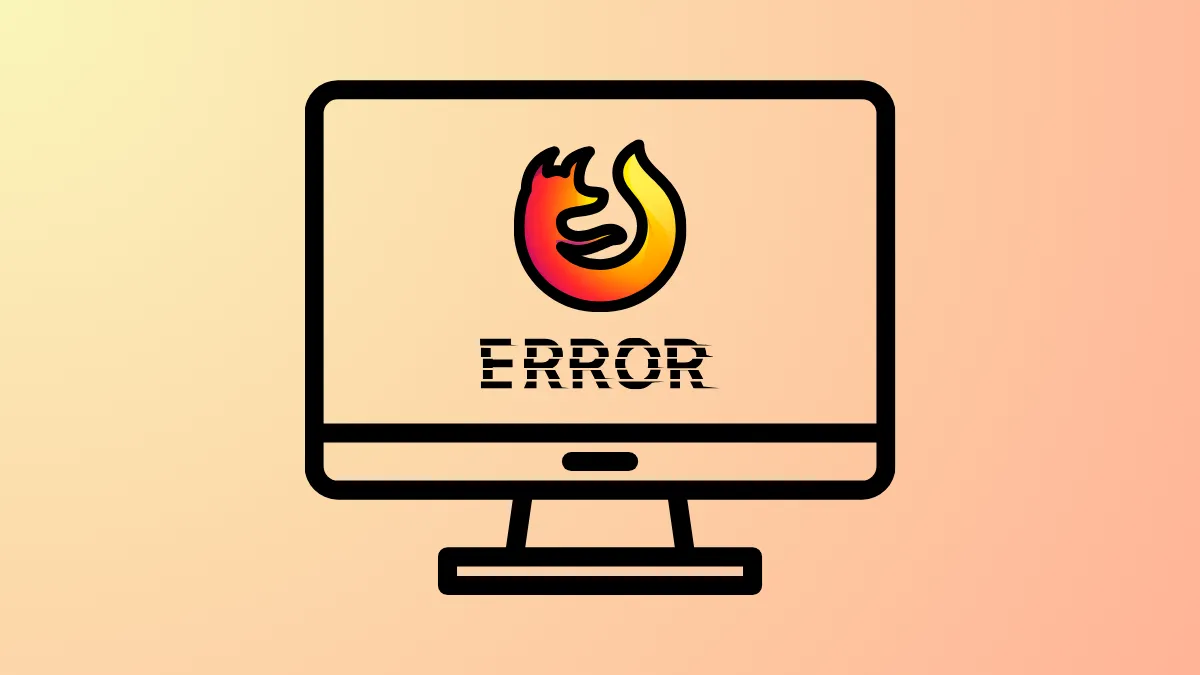Local web development workflows depend on accessing localhost to test applications. When Firefox cannot reach localhost but Edge and Chrome work as expected, the issue often relates to browser-specific network settings, proxy configurations, or security restrictions. Addressing these differences restores reliable local testing in Firefox.
Check Firefox Proxy Settings
Step 1: Open Firefox and click the menu button (three horizontal lines) in the upper right corner. Select Settings from the dropdown.
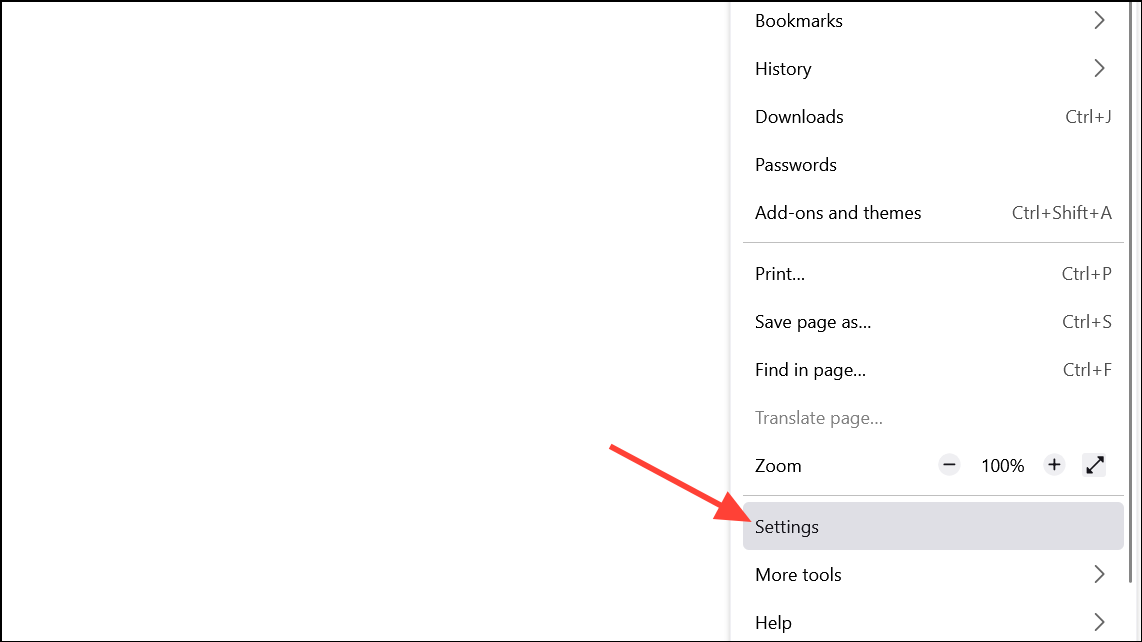
Step 2: Scroll down to the Network Settings section and click Settings… next to it.
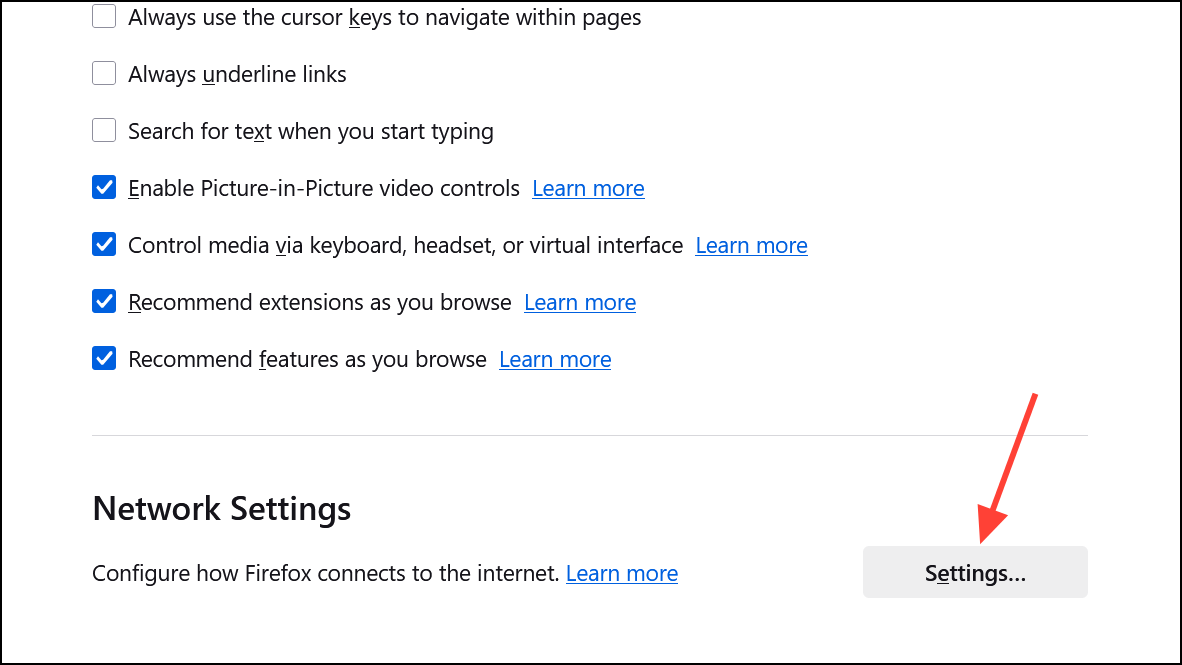
Step 3: In the Connection Settings dialog, ensure No proxy or Use system proxy settings is selected. If Manual proxy configuration is enabled, verify that localhost and 127.0.0.1 are listed under No Proxy for. This bypasses the proxy for local addresses.
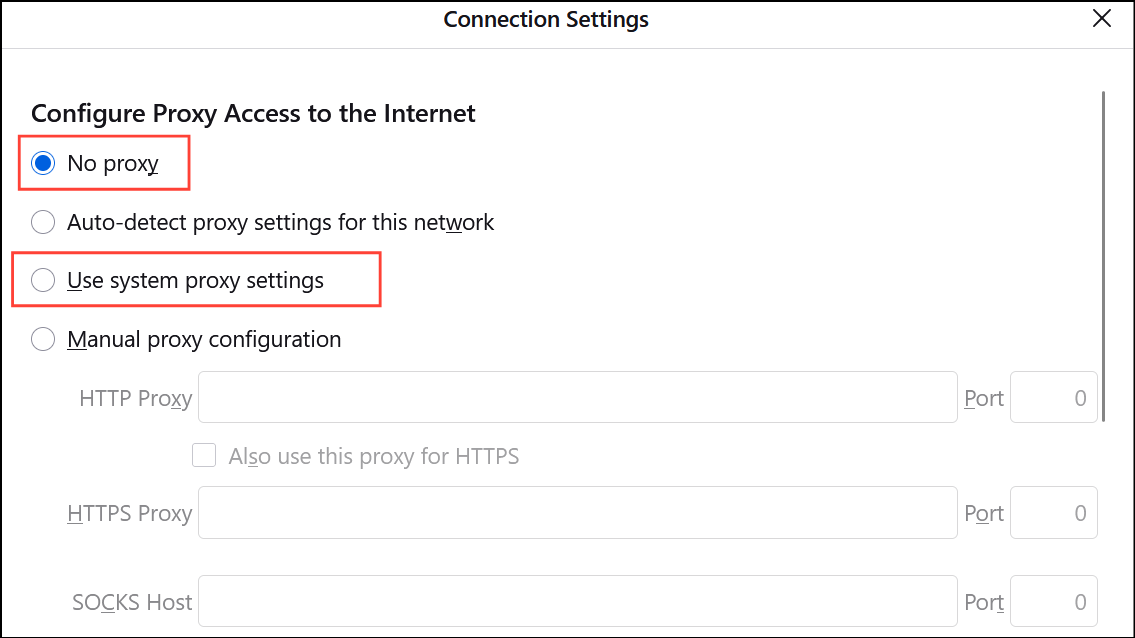
Step 4: Click OK to save changes and restart Firefox. Try accessing http://localhost again.
Allow Insecure Connections to Localhost
Firefox blocks certain insecure connections by default, especially when accessing https://localhost with self-signed certificates. This can cause a refusal to connect.
Step 1: If you see a warning such as "Secure Connection Failed" or "Your connection is not secure," click Advanced on the error page.
Step 2: Click Accept the Risk and Continue to bypass the warning for local development. This adds a security exception for your local server.
Step 3: To manage these exceptions, open the menu, go to Settings, search for Certificates, and click View Certificates. Under the Servers tab, you can remove or modify exceptions as needed.
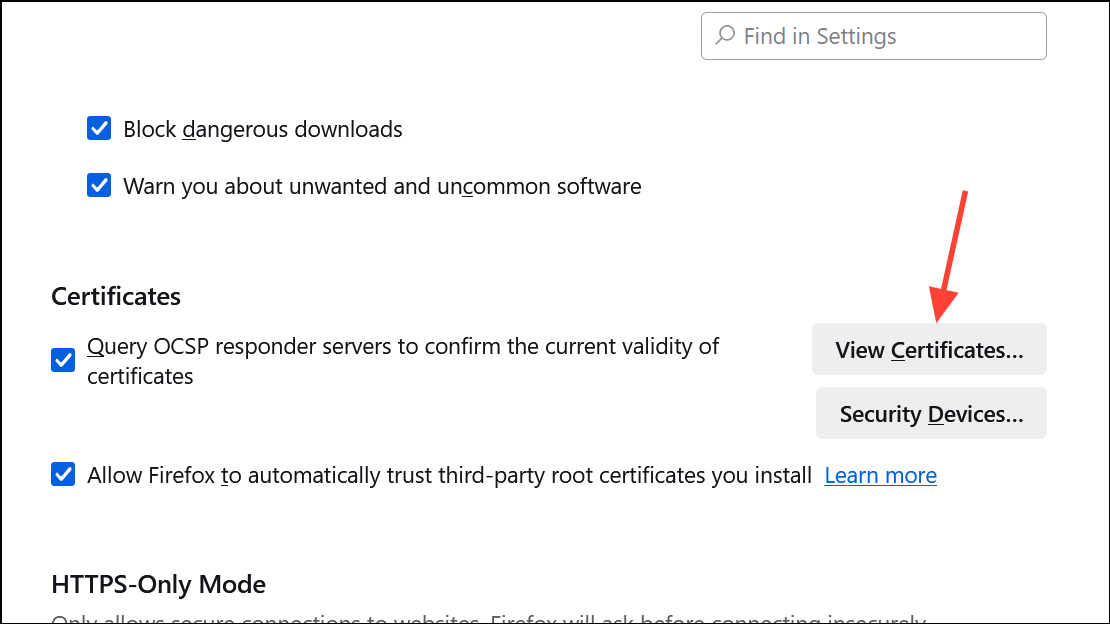
Temporarily Disable Enhanced Tracking Protection
Firefox’s Enhanced Tracking Protection (ETP) may interfere with localhost access, particularly if your development environment uses cookies or custom headers.
Step 1: When on your localhost page, click the shield icon in the address bar.
Step 2: Toggle the switch to disable Enhanced Tracking Protection for this site. Reload the page to check if access is restored.
Step 3: Re-enable protection after testing to maintain privacy and security for other sites.
Clear Firefox Cache and Cookies
Corrupted cache or cookies can prevent Firefox from properly loading localhost resources.
Step 1: Open the menu and select Settings. Go to Privacy & Security.
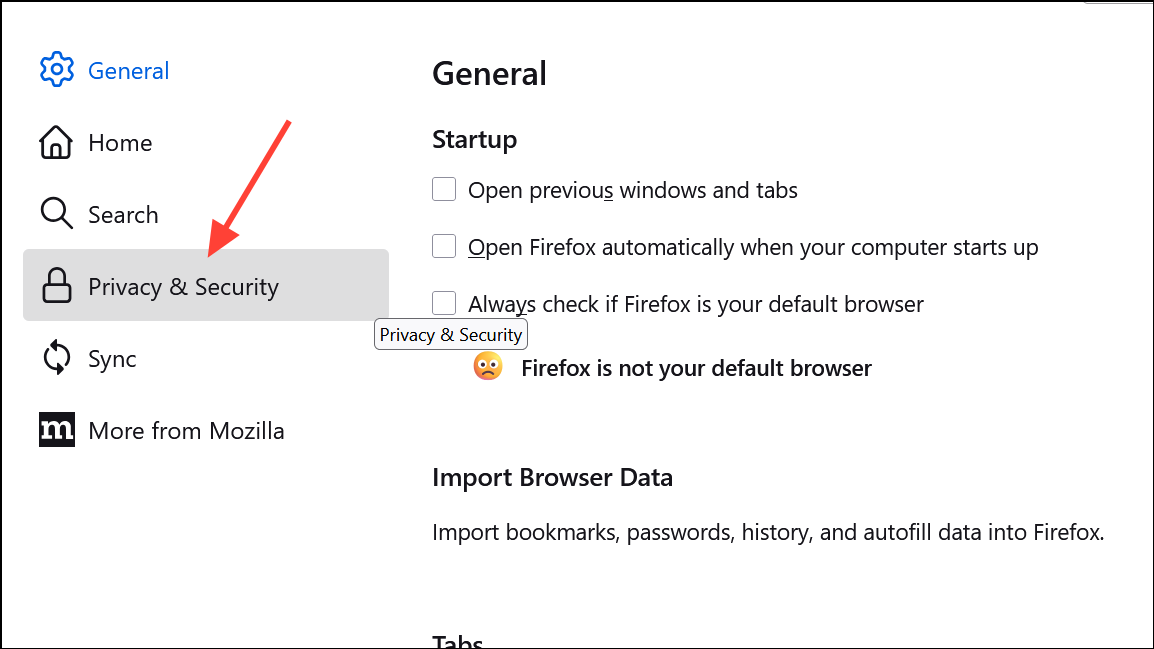
Step 2: Under Cookies and Site Data, click Clear Data….
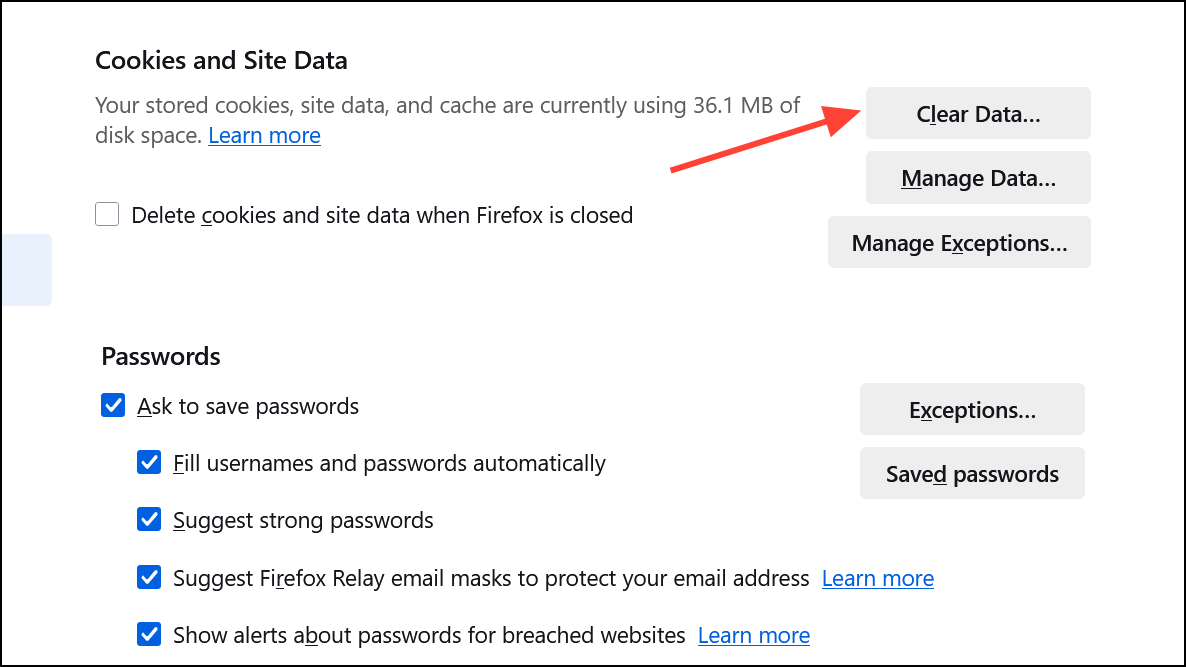
Step 3: Select both options or just Cached Web Content and click Clear.
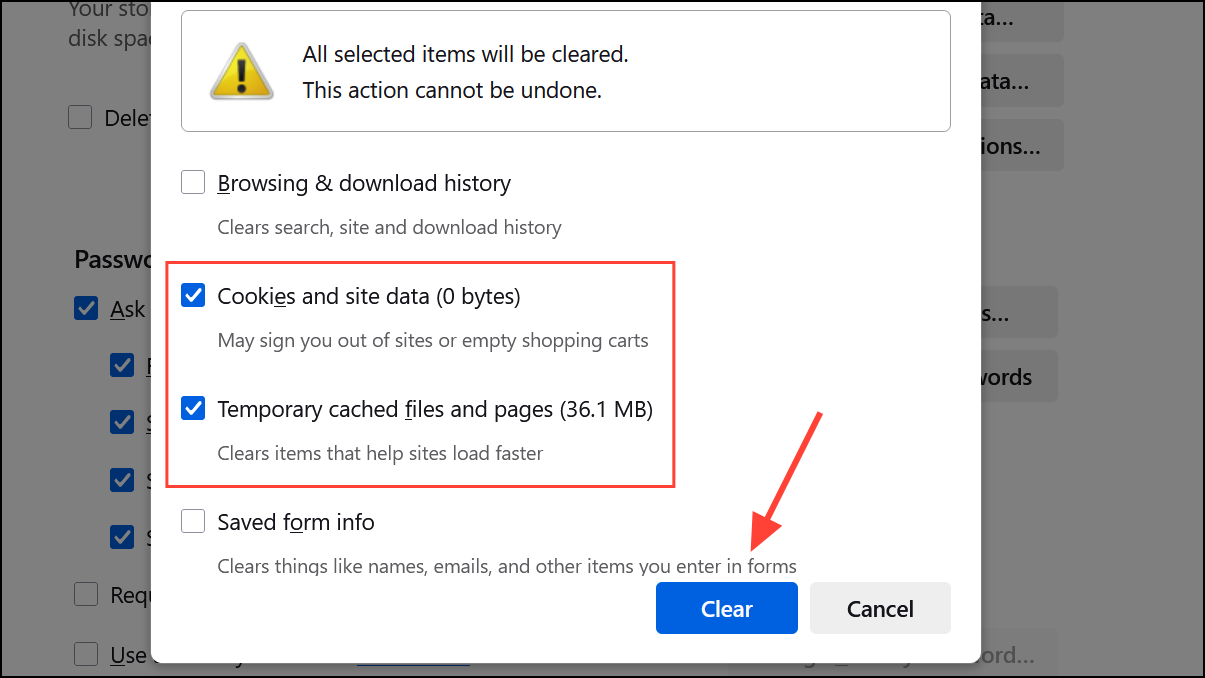
Step 4: Restart Firefox and try accessing localhost again.
Check Windows Firewall and Antivirus Settings
Some security software may block Firefox from connecting to local addresses while allowing other browsers. Adjusting these settings can restore access.
Step 1: Open Windows Security and go to Firewall & network protection.
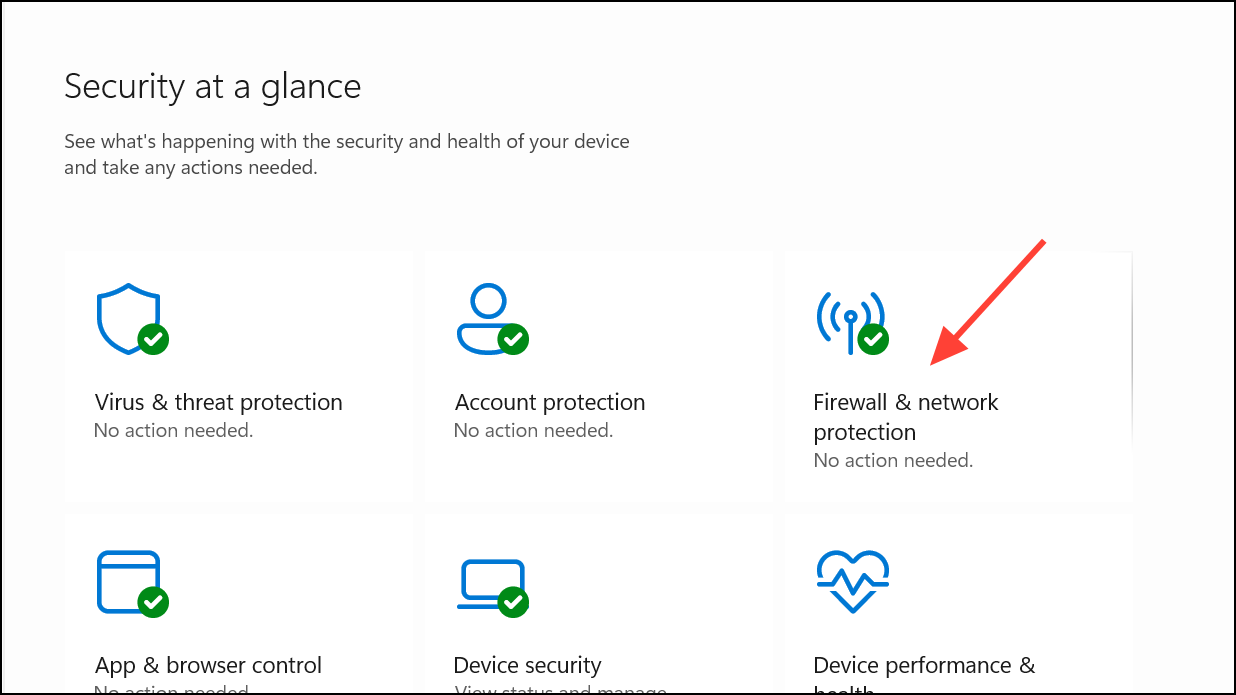
Step 2: Click Allow an app through firewall.
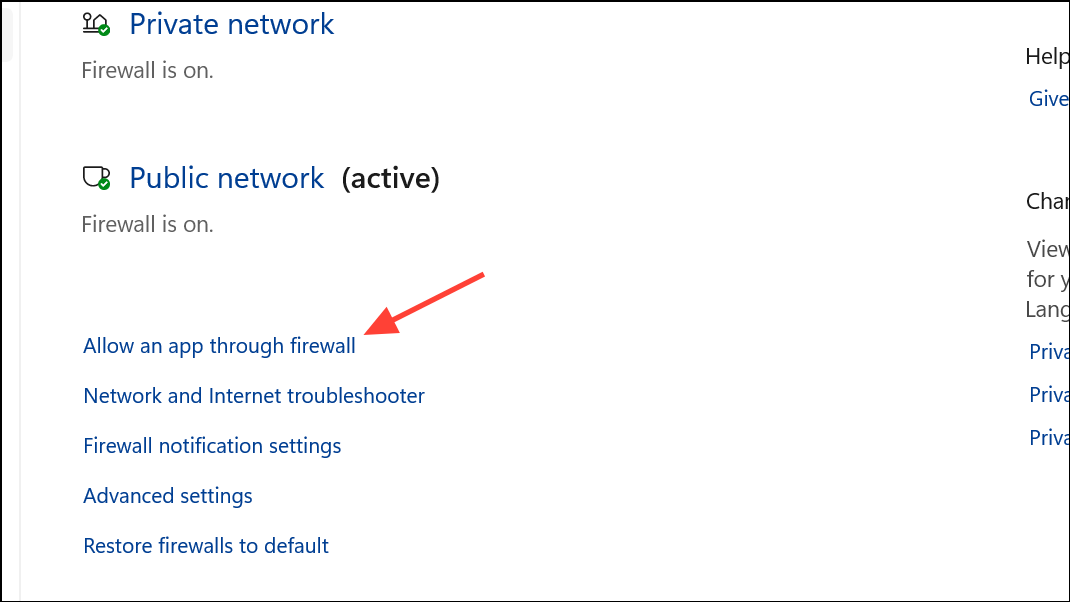
Step 3: Click the change settings button near the top.
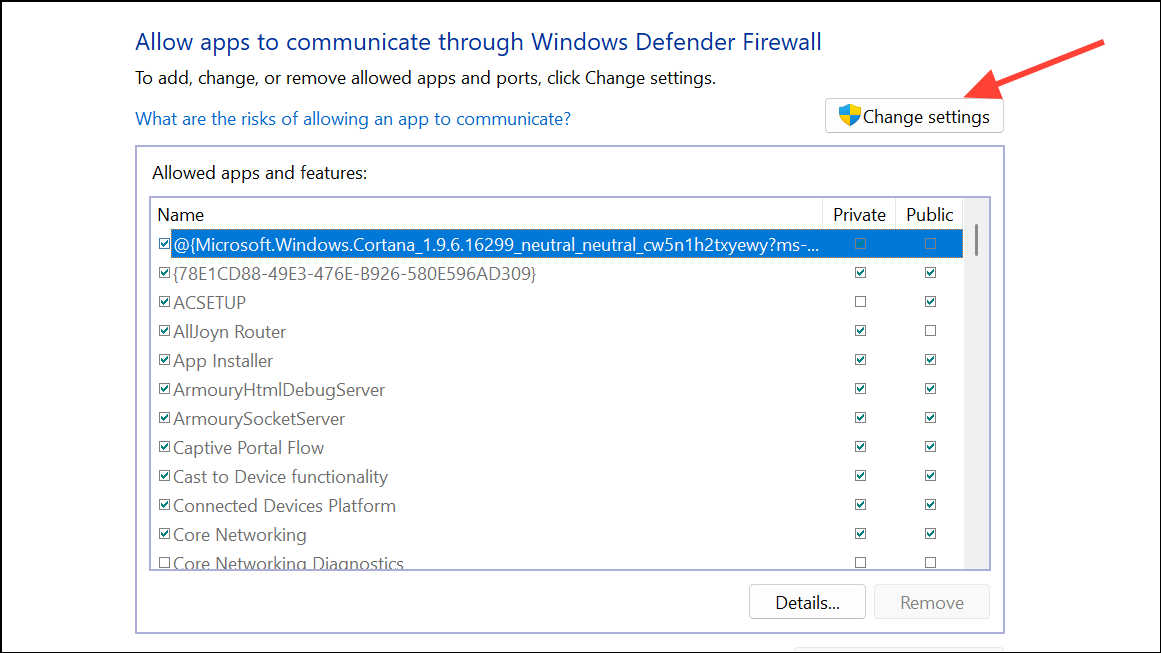
Step 4: Then click Allow another app below the list of apps and features.
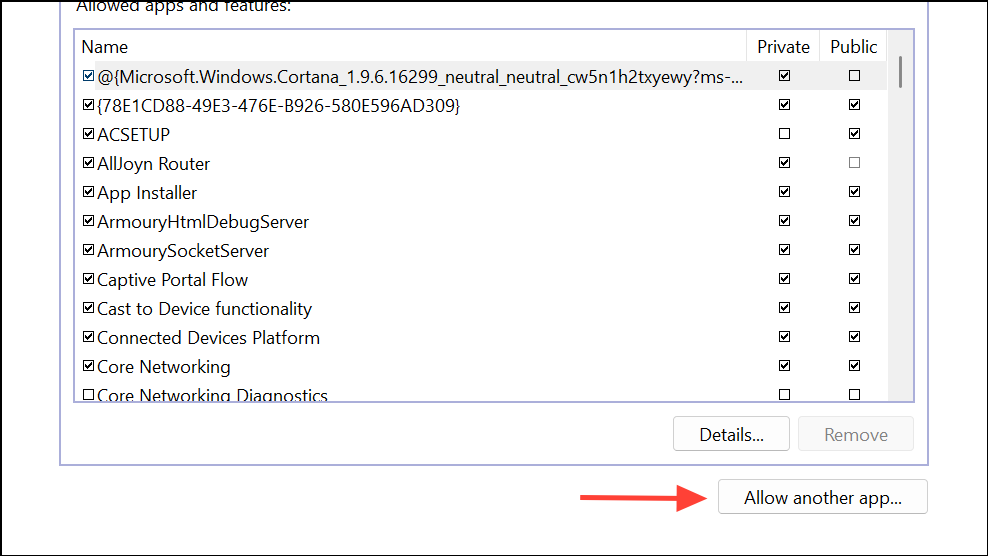
Step 5: Browse to where you have installed Mozilla Firefox and select it. Ensure it is checked for both Private and Public networks.
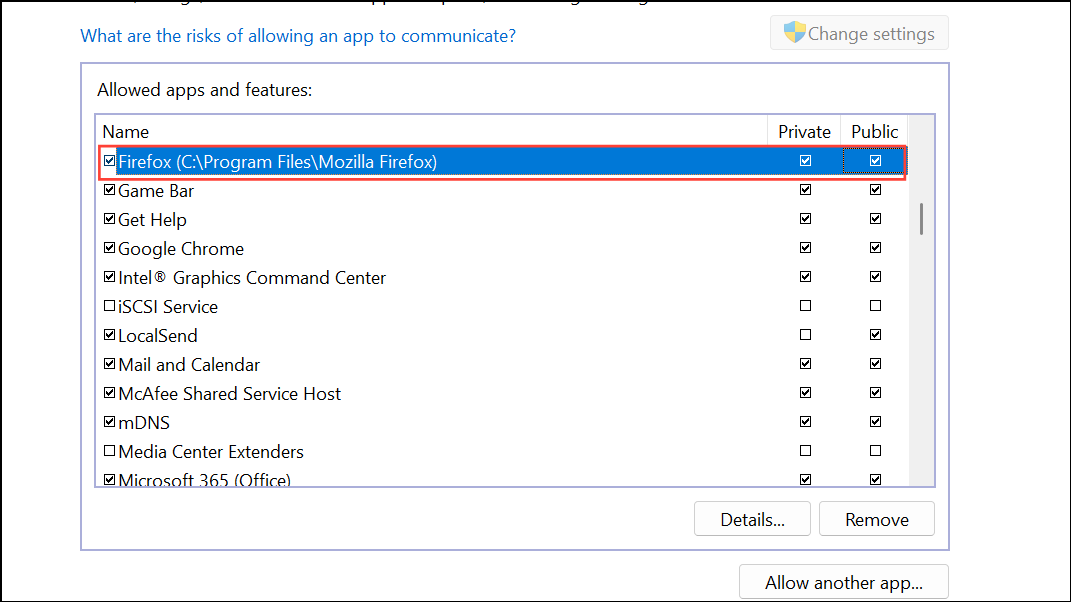
Step 6: If you use third-party antivirus or firewall software, check its settings for any blocked applications or rules affecting Firefox. Temporarily disable or adjust these rules to test if localhost becomes accessible.
Reset Firefox Network Settings
If none of the above steps resolve the issue, resetting Firefox’s network settings can resolve persistent misconfigurations.
Step 1: In the address bar, type about:support and press Enter.
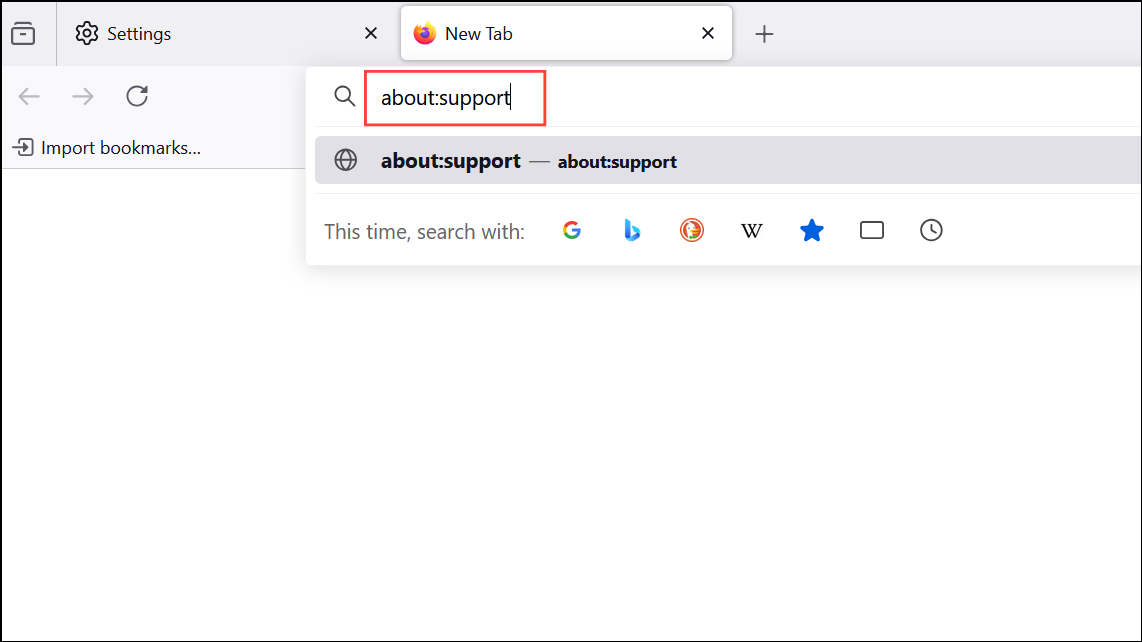
Step 2: Click Refresh Firefox… in the upper right corner. This will restore Firefox to its default state, removing add-ons and custom settings.
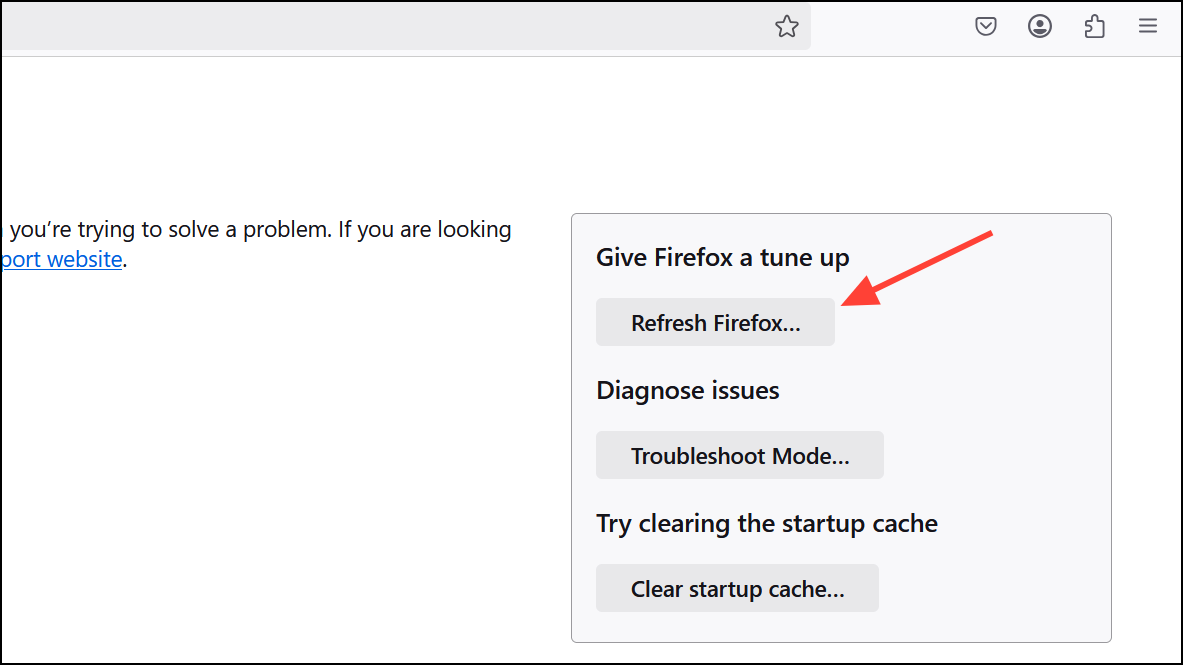
Step 3: After the reset, reinstall any necessary extensions and reconfigure your preferences. Test localhost access again.
Addressing these browser-specific settings and security restrictions usually restores localhost access in Firefox, streamlining your development process alongside Edge and Chrome.

